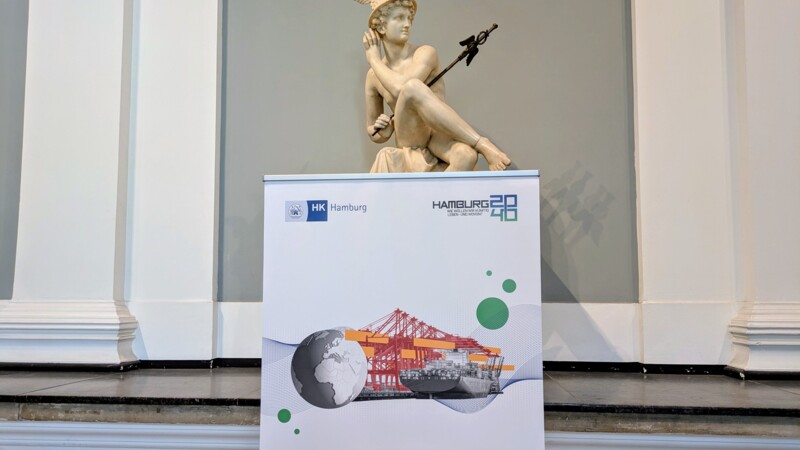"So far, China has proven a reliable partner and has essentially adhered to the rules," Berlemann pointed out. However, any change would have serious repercussions. China controls around 90% of the vital rare earth deposits used in wind power, electromobility, aerospace and medical technology. Amid the trade war with the U.S., China has threatened to restrict the export of rare earths. "Although there are deposits outside China, mining them is often not worthwhile. Thus, China remains in a powerful position that is almost impossible to evade," Berlemann confirmed.
Germany should continue to engage in bilateral trade with both the United States and China, according to Professor Michael Berlemann, Director of the Hamburg Institute of International Economics (HWWI), despite the ongoing geopolitical turmoil. "We shouldn't turn our backs entirely on any of our trading partners. Neither the U.S. nor China, even if Donald Trump is causing us a headache at present." Trade relations between Germany and China have steadily increased over the years, and the country, which has a population of 1.4 billion and a gross domestic product of almost USD 19 trillion, is one of Hamburg's most important trading partners. It ranks as the second largest importer and the fourth largest exporter.
View of China

Germany as a pharmaceutical centre
China is also a giant in the global pharmaceutical industry. Germany is no longer the "world's pharmacy" as the production of medicines has relocated to Asia. Could pharmaceutical production return? "We can't compete with China economically as a production hub, but we remain strong in research," said Berlemann. Research-based pharmaceutical companies in Germany are investing over €9.9 billion in new medicines, and key technologies are being developed in north Germany. A diverse network of high-tech companies, renowned research institutions, and universities in the Hamburg Metropolitan Region are turning innovative life science ideas into marketable products.

View of U.S.
The German economy is closely linked to the U.S., Germany's most important trading partner. Preliminary figures published by the Federal Statistical Office indicate that goods worth €252.9 billion were traded between Germany and the U.S. in 2024. The U.S. economy is worth over USD 29 trillion and remains Hamburg's top trading partner. Despite ongoing ups and downs in customs negotiations with the U.S., Germany is particularly dependent on the U.S. in terms of IT. "That's not going to change. We can no longer compete with major tech companies. Germany's high labour costs make it unsuitable for the mass market," Berlemann remarked. "Things look different in terms of AI, though. We are well positioned in terms of research, and we should definitely capitalise on the resulting opportunities in future."

Seize opportunities now
Yet, the U.S. tariff policy is leading to opportunities elsewhere. "Countries such as Mexico and Canada and those in Latin America and Japan are facing high tariffs. Thus, we should consider expanding existing trade relations and seek new opportunities." The broader our position in terms of trade policy, the more resilient we will be. Hamburg traditionally focuses on trade, Berlemann stressed, and the Port of Hamburg secures around 607,000 port-related jobs nationwide. In addition, Hamburg's role as a goods distribution centre is crucial for supply chains in Germany, Austria and Switzerland as well as neighbouring countries such as Poland, the Czech Republic. "Intensifying long-distance trade is good for Hamburg. Thus, the more international partners, the better."
ys/pb
Sources and further information
More
Similar articles

Hamburg eyeing opportunities in other global regions

India Week to celebrate Hanseatic-India links
